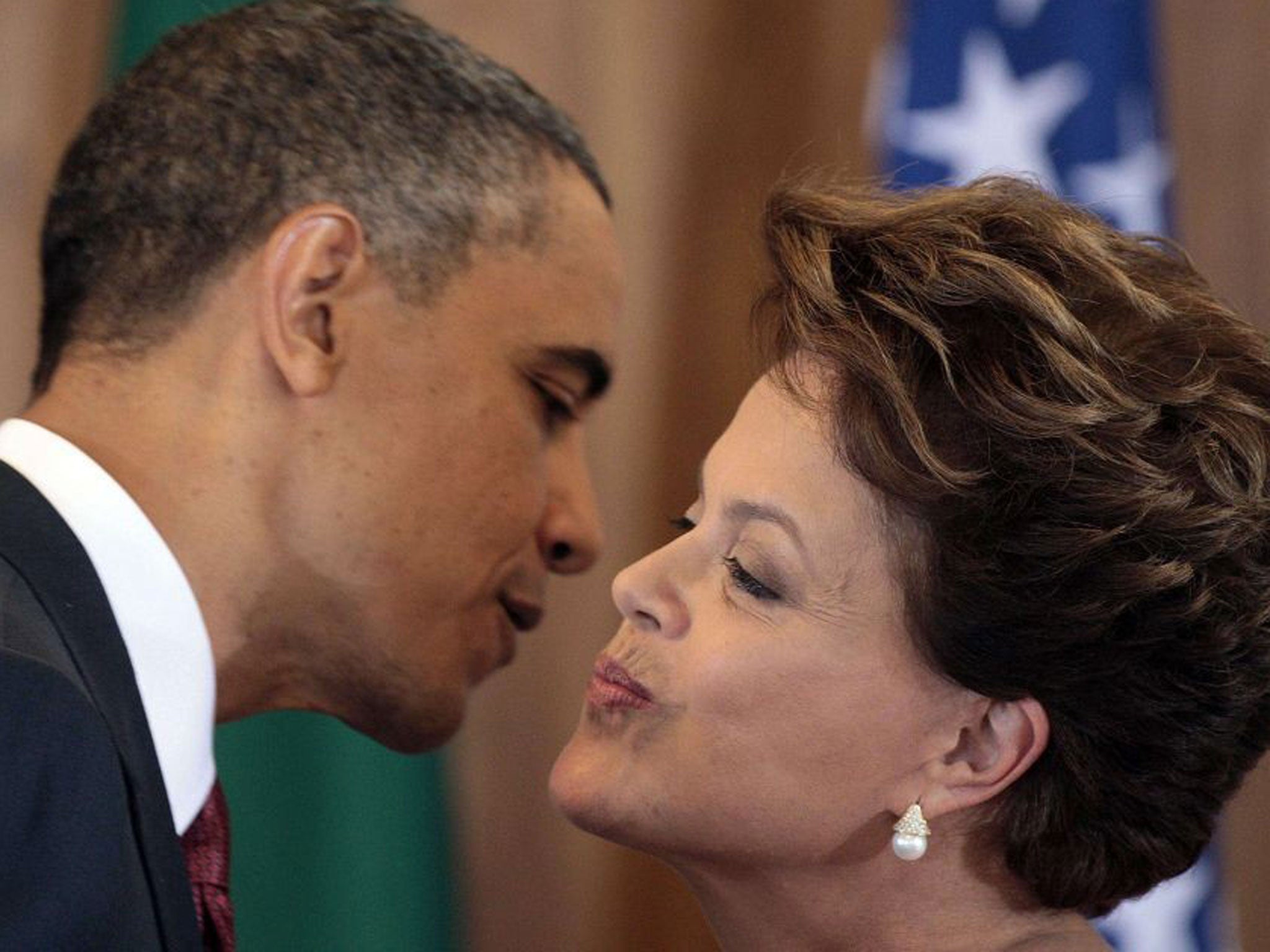US pushed to explain allegations of NSA spying on Brazilian President Dilma Rousseff

Your support helps us to tell the story
From reproductive rights to climate change to Big Tech, The Independent is on the ground when the story is developing. Whether it's investigating the financials of Elon Musk's pro-Trump PAC or producing our latest documentary, 'The A Word', which shines a light on the American women fighting for reproductive rights, we know how important it is to parse out the facts from the messaging.
At such a critical moment in US history, we need reporters on the ground. Your donation allows us to keep sending journalists to speak to both sides of the story.
The Independent is trusted by Americans across the entire political spectrum. And unlike many other quality news outlets, we choose not to lock Americans out of our reporting and analysis with paywalls. We believe quality journalism should be available to everyone, paid for by those who can afford it.
Your support makes all the difference.Mexico and Brazil have called for the United States to explain allegations that a US government spy agency may have intercepted the communications of political leaders.
A Brazilian news channel led with reports on Sunday that the National Security Agency may have spied on the phone calls and emails of Brazilian President Dilma Rousseff and Mexican President Enrique Pena Nieto.
The report by Globo's news program “Fantastico” was based on documents obtained from NSA whistleblower Edward Snowden by journalist Glenn Greenwald, who lives in Rio de Janeiro and was listed as a co-contributor to the report.
Fantastico showed what it said was an NSA slide dated June 2012 displaying passages of written messages sent by Pena Nieto, who was still a Mexican presidential candidate at that time. In the messages, Pena Nieto discussed who he was considering naming as his ministers once elected.
A separate slide displayed communication patterns between Rousseff and her top advisers, Fantastico said, although no specific written passages were included in the report.
Brazil's government has now called in US ambassador Thomas Shannon and given the US government until the end of the week to provide a written explanation of the allegations.
“I expressed to (Shannon) the Brazilian government's indignation over the facts revealed in the documents,” Foreign Minister Luiz Alberto Figueiredo told journalists gathered at a news conference.
“From our point of view, this is an inadmissible and unacceptable violation of Brazilian sovereignty,” he said.
Mexico has also requested the Obama administration investigate the allegations, which, if proved true, would be considered a serious violation of sovereignty for the country.
The Brazilian Senate, where some members have proposed offering Snowden political asylum in Brazil, launched an inquiry into the secret surveillance of Brazilian Internet communications by the NSA.
Rousseff held a Cabinet meeting on Monday that included the country's defense, justice, communications and foreign ministers to discuss a response to the new espionage report.
The White House said it would respond to the requests of its "partners and allies" through diplomatic channels.
White House spokeswoman Caitlin Hayden said: "While we are not going to comment publicly on every specific alleged intelligence activity, as a matter of policy we have made clear that the United States gathers foreign intelligence of the type gathered by all nations."
Additional reporting by Reuters
Subscribe to Independent Premium to bookmark this article
Want to bookmark your favourite articles and stories to read or reference later? Start your Independent Premium subscription today.
Join our commenting forum
Join thought-provoking conversations, follow other Independent readers and see their replies
Comments